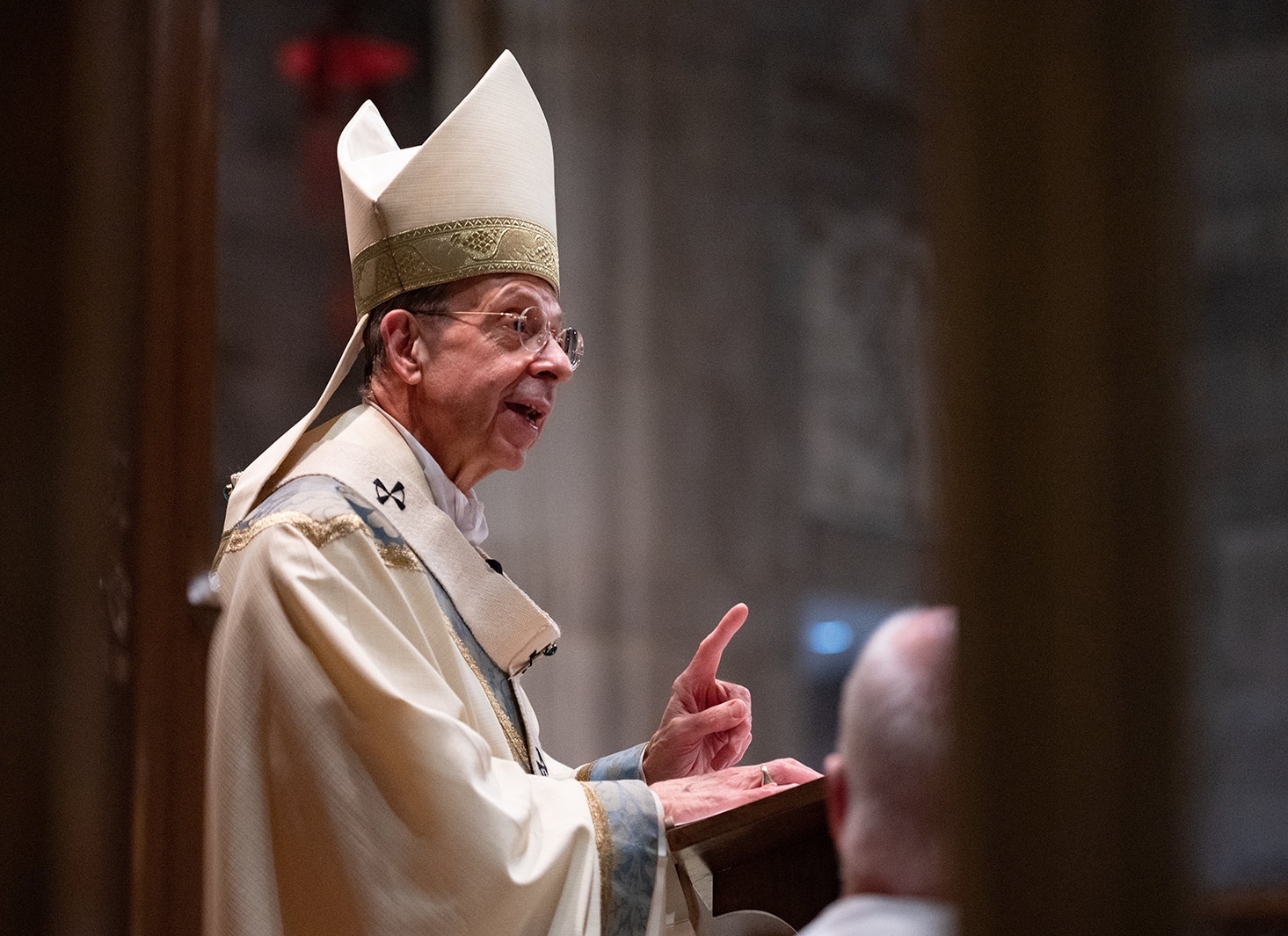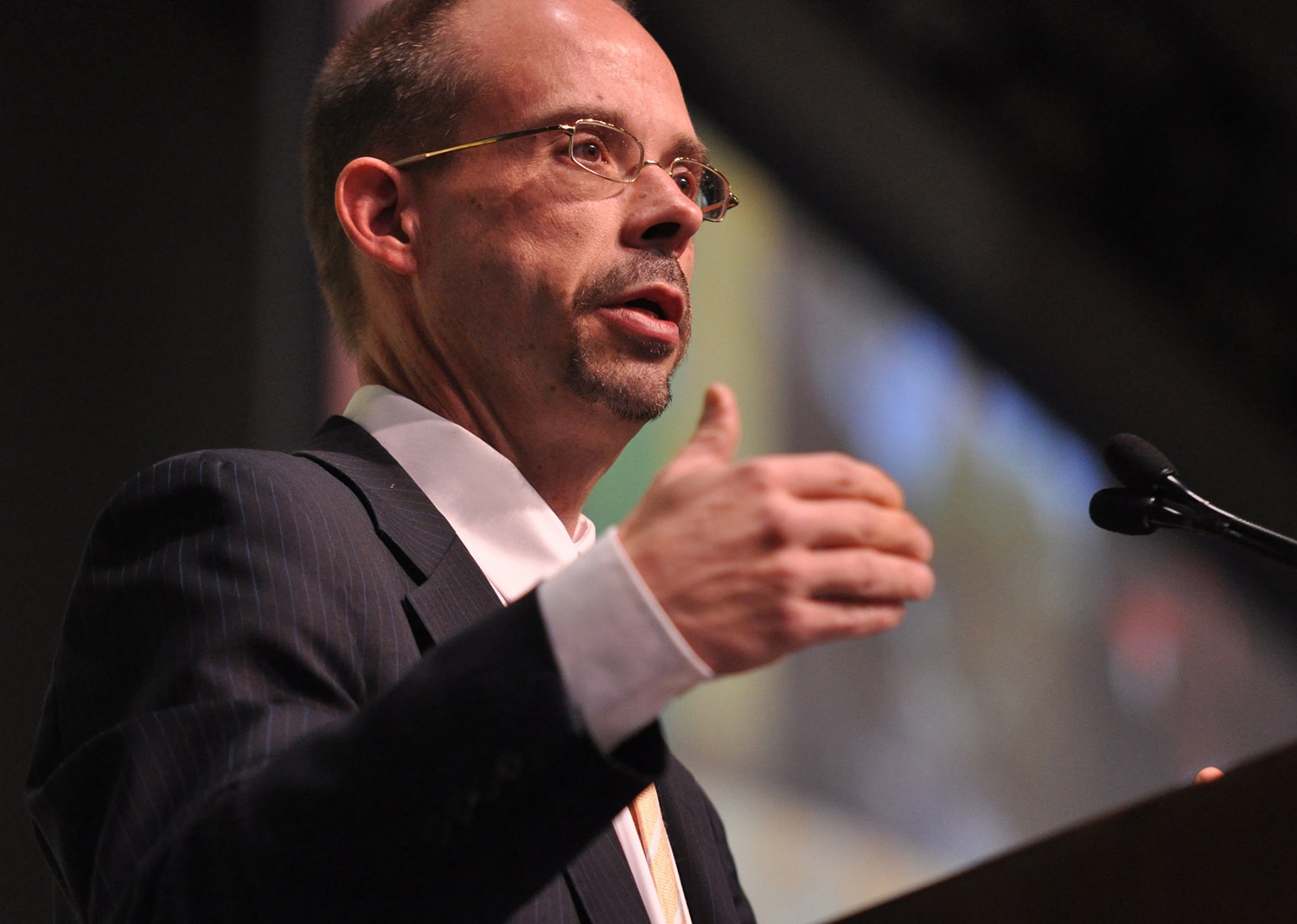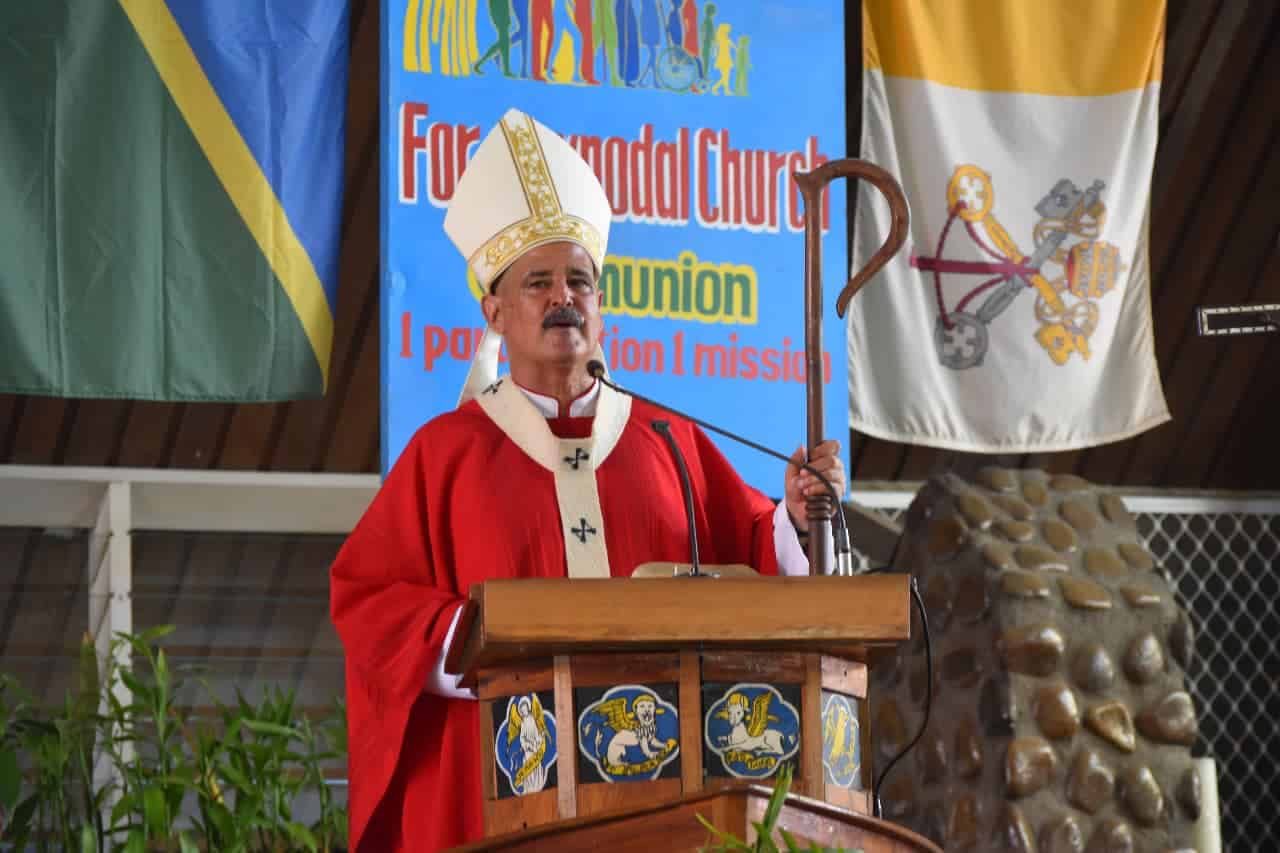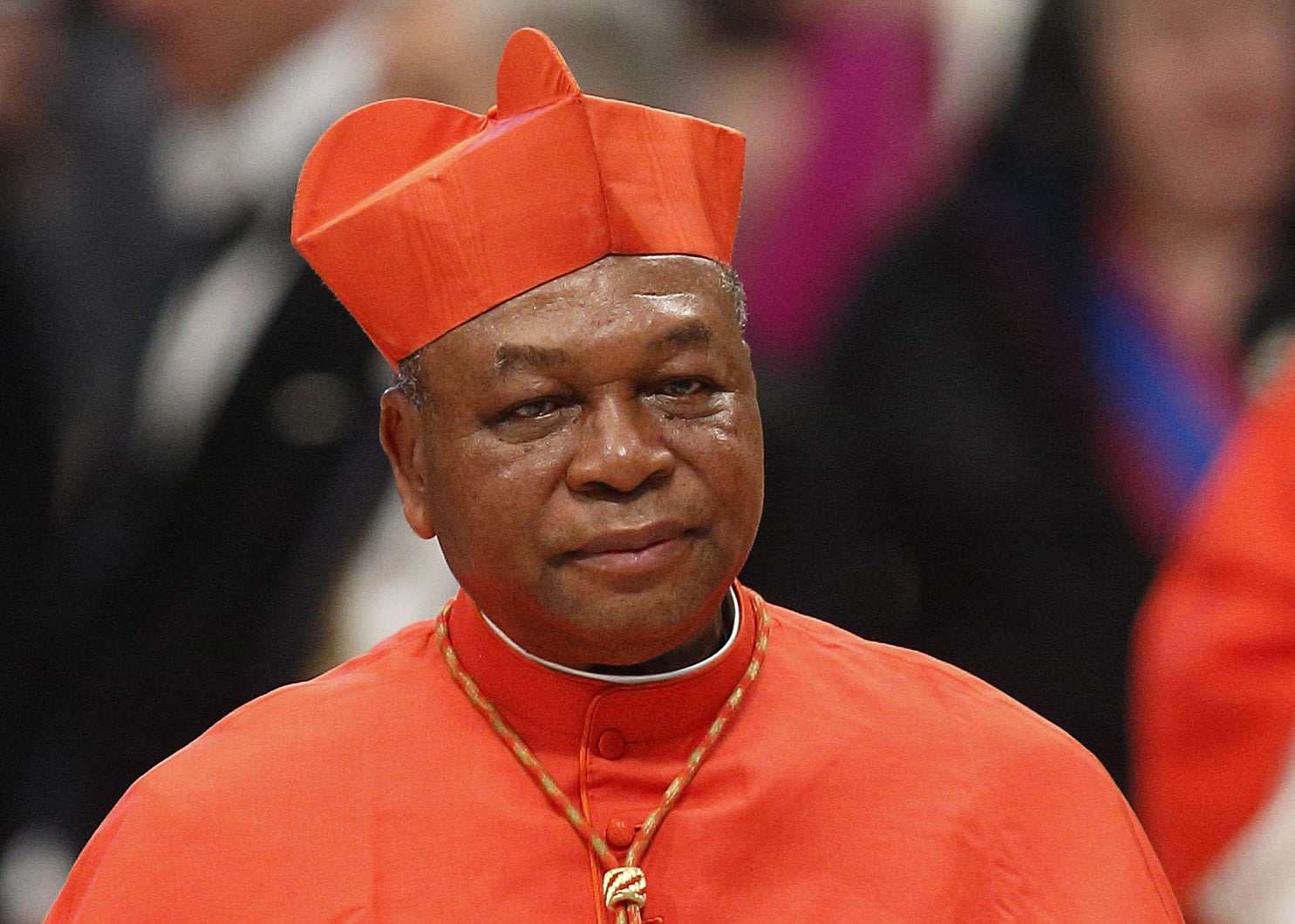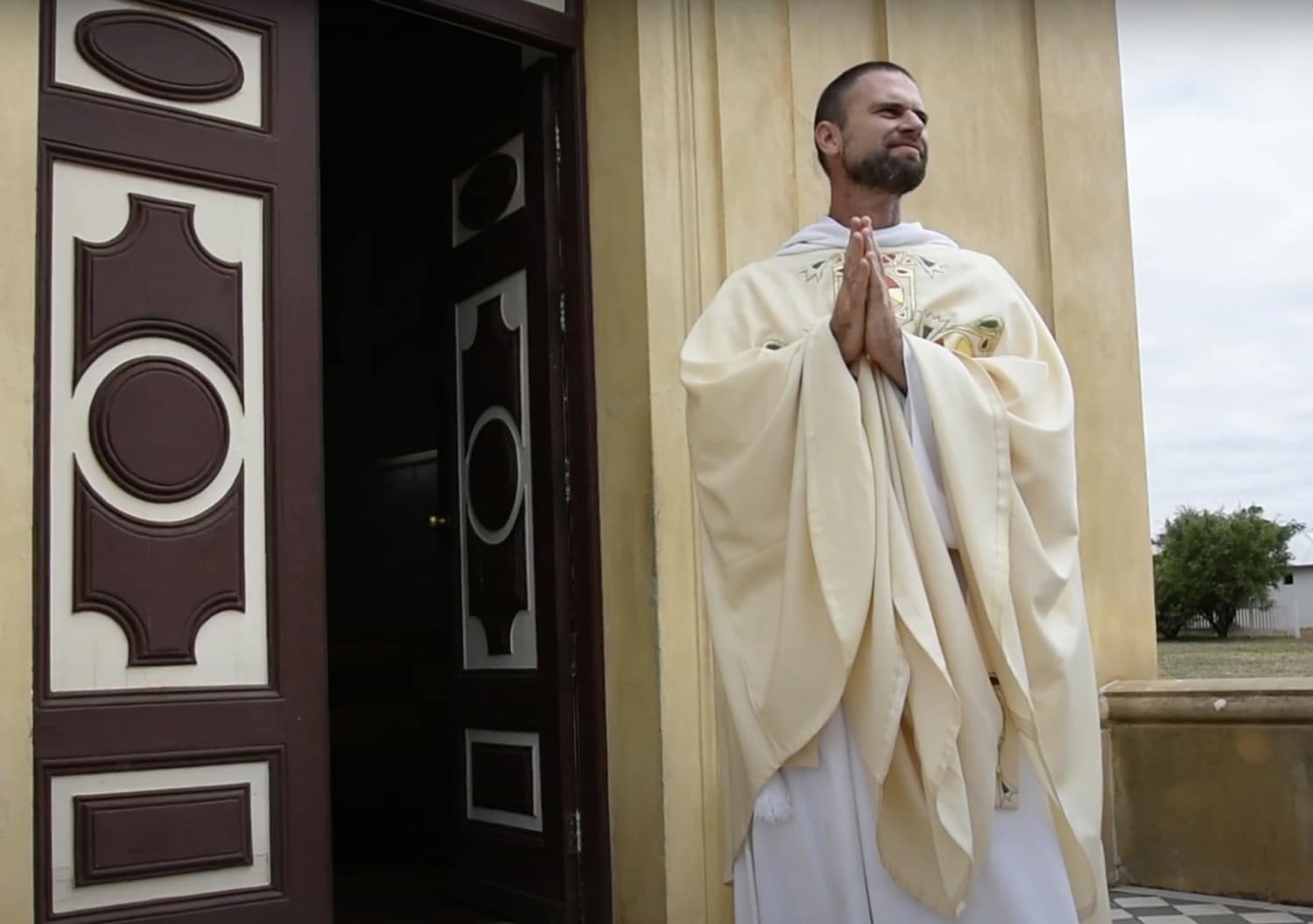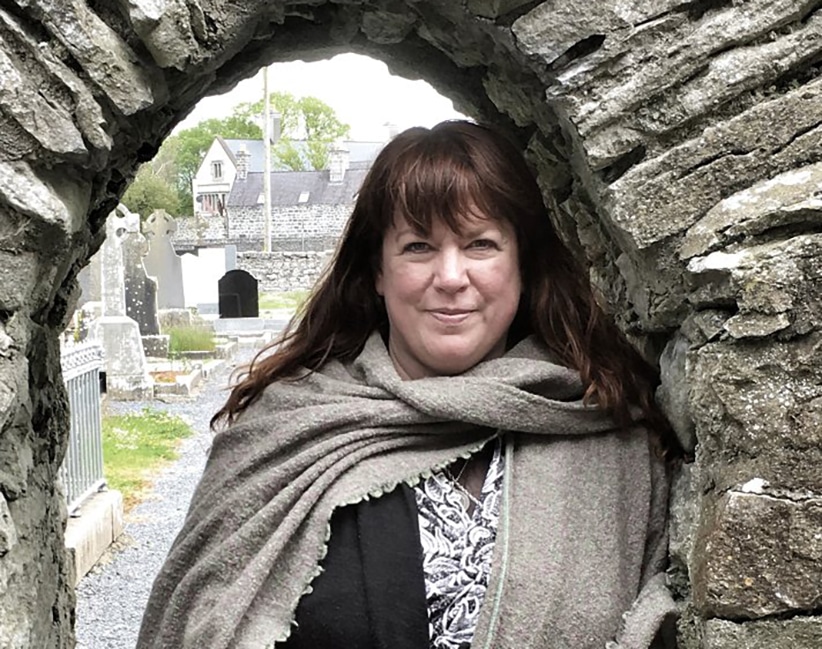(OSV News) — The Archdiocese of Baltimore announced Sept. 29 that it has filed for Chapter 11 bankruptcy reorganization, ahead of Maryland’s Child Victims Act, which effective Oct. 1 repeals the statute of limitations for certain civil claims regarding sexual abuse.
In a statement released Sept. 29, Archbishop William E. Lori said the decision, made “after consulting with numerous lay leaders and clergy,” will “best allow the Archdiocese both to equitably compensate victim-survivors of child sexual abuse and ensure the local Church can continue its mission and ministries.”
OSV News spoke with Archbishop Lori to discuss the impact of the filing on the life of the local church in the Archdiocese of Baltimore.
OSV News: From your perspective as a shepherd, where is Jesus in the midst of the Archdiocese of Baltimore’s filing for bankruptcy?
Archbishop Lori: After doing all the consultations leading up to this and engaging in discernment and a lot of prayer over this, I recognized that the law that was passed last April and the decision to file for Chapter 11 was a very difficult moment, not just for me, but for the church, for parishioners and for victim-survivors. And I asked that very question: How does this relate to the Lord and to what he has done for us?
And the answer that kept coming to me in prayer is death and resurrection — that this is a moment when the local church recognizes what has happened to so many victim-survivors, the damage that was done, the harm that was caused to so many people’s faith as the result of the scandal that was both given and taken.
This is a moment for us in a dramatic way to die with Christ, and to bring these things of which we are so ashamed to the cross; to submit them at the feet of our savior, and to beg for mercy and to beg forgiveness, confident that God will look upon us all through the eyes of mercy and enable us to share in this resurrection; to emerge from this a church that has been purified — a church that is more determined than ever to ensure that nothing like this ever happens again, a church that is compassionate toward those who have been harmed.
And I pray that the victim-survivors will emerge with some measure of comfort and healing and hope.
OSV News: What does that process look like at the granular level, or what do you hope that will look like? What do you see that might change, or that you might want to see change, as this process moves forward?
Archbishop Lori: I think for quite some time the focus of the archdiocese has been very much on evangelization and on helping as many of our Catholics to engage as missionary disciples as possible.
And missionary disciples are those who live their faith actively, lovingly, and they are those who accompany not only their families and loved ones and fellow parishioners, but also those who have been alienated from the faith, those who are poor in need, those who are perplexed, the young who are coming along, those who are discerning how they might serve in the life of the Church.
That’s what I’m hoping and praying for, and I’m praying that this process will be a new impetus for all of that, not just a legal proceeding. … I know God can use anything and everything, and I pray the Lord will use this proceeding in this way for us.
OSV News: How can the clerical sexual abuse crisis call us to a renewed understanding of God’s plan for human sexuality and the call to chastity?
Archbishop Lori: One of the most egregious aspects of the sexual abuse crisis, in addition to the personal harm it inflicted on so many, is that it goes directly against everything the Church says about the dignity of the human person, the incalculable worth of every person from the moment of conception to natural death.
(Sexual abuse goes against) everything the Church teaches about the beauty and meaning of human sexuality, everything the Church teaches about purity of heart — purity of heart that extends through every aspect of the being, including the body. And it has clouded over that teaching in many dramatic ways.
So yes, I would hope that emerging from this, when I speak of a church that has been purified, I mean that we would look at one another as the men and women God created us to be, (that we would) respect and love one another. And that includes living out the Church’s teaching on human sexuality and the virtue of chastity as well.
OSV News: What would you say to faithful who feel it is unfair that they have to help pay for the sins of others as a result of clerical sexual abuse and consequent diocesan bankruptcies?
Archbishop Lori: I would hearken back to the many conversations I’ve had with victims. And while I’m not able on my own to undo what has happened with them, the events may have taken place in the past but much suffering continues in the present. Those who are victim-survivors are our brothers and sisters. And we have a moral obligation toward them.
And I would also add that while the vast, vast majority of our clergy and people have not engaged in this (sexual abuse), we are called to bear one another’s burdens. We are called to atone for one another’s sins.
We are a community that shares in the graces that the Lord has given us. And this is simply another way of doing that. That’s what I would say and have said to people who have asked me that.
OSV News: The Archdiocese of Baltimore’s Chapter 11 filing comes amid two major initiatives in the life of the Catholic Church in the U.S. — the National Eucharistic Revival and the worldwide Church’s Synod on Synodality. Is there any way you can relate all three?
Archbishop Lori: That probably will happen as we move ahead, but I’ll make two observations in response to what you’ve asked.
Number one, the synod is all about journeying together and what we’re about to enter upon is a difficult journey. It is a very challenging journey.
It is a journey that will have many rough spots in it, to be sure. But we chose to do the Chapter 11 process because it gets everyone around the table together; and it enables us, hopefully, to journey together, to come together around a plan by which everyone can move forward.
So while I would certainly not call this a synodal process, I would say that we are journeying together, and as I said before, this journey includes really all the faithful of the archdiocese.
And secondly, what doesn’t relate to the Eucharist? The Eucharist is the source and summit of our faith, and if we are really living the Eucharist, which is the sacrament of charity and the bond of unity, it seems to me that we’re going to want to be a church of love and compassion and service to those who have been harmed, but also to the many who need the ministries of the Church and who want to participate in those ministries. As the bond of unity, it is the Eucharist that brings us together in good times and in bad, in sickness and in health, for better or for worse. And it is in a time like this that we need to be together as church more than ever, more than ever.

